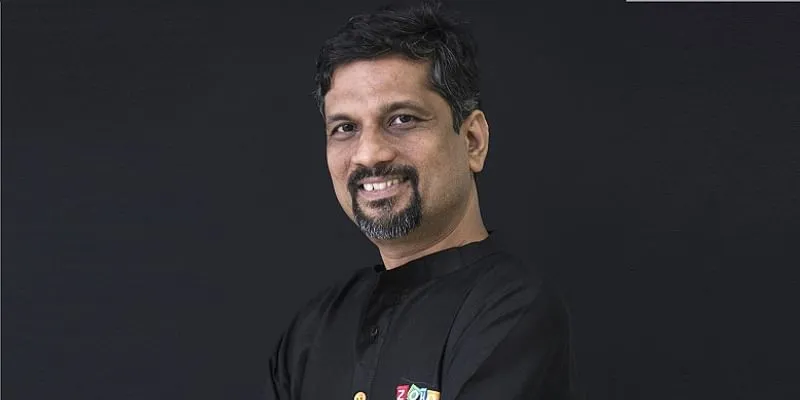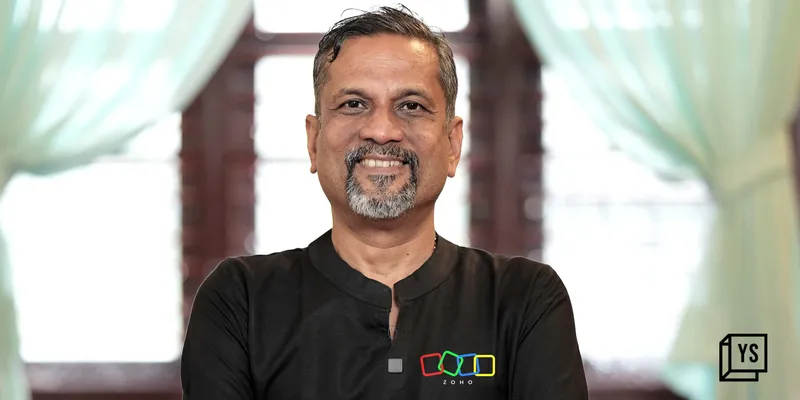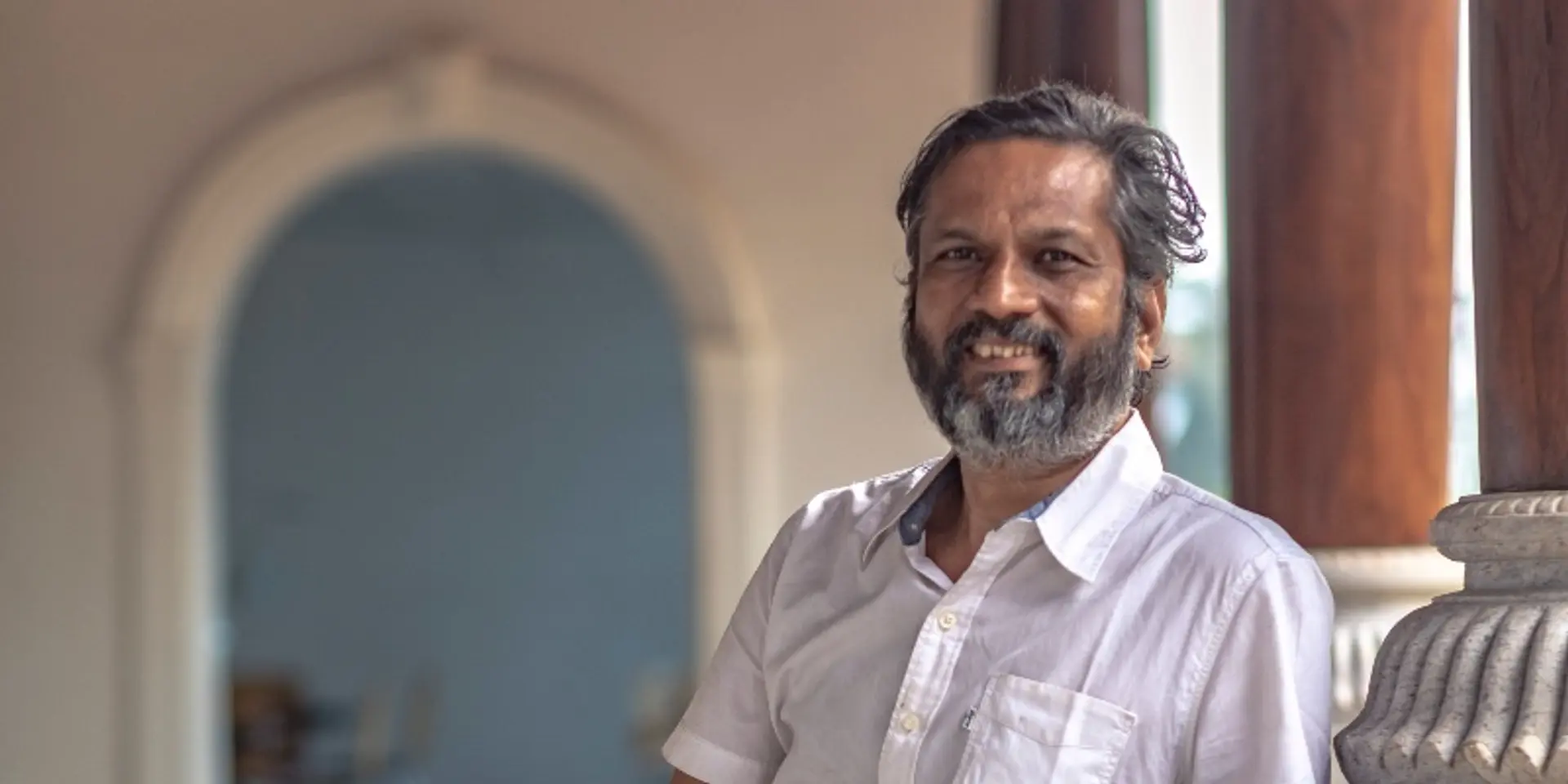Zoho to focus on R&D, building allied innovative projects: Sridhar Vembu
Zoho is involved in projects either through investments, partnerships or self-initiated, and they are at the early stages, says Sridhar Vembu.
Software-as-a-solution (SaaS) company Zoho Corporation is focusing a part of its efforts on building technology in several allied sectors.
In an exclusive interaction with YourStory, Co-founder and CEO Sridhar Vembu shares that Zoho’s research and development (R&D) team is working on a number of such projects.
“There’s no recipe or formula to it. If it were, everybody would do it. In any real R&D project, often in project management, people give the analogy of trains arriving on time. But that’s not the right analogy. The right analogy is cutting a path through an unknown jungle and territory. Or as the phrase goes—‘unknown unknowns’,” says Vembu.
He adds that Zoho is involved in projects either through investments, partnerships or self-initiated, and they are at the early stages. These include new technologies in farming (such as building automatic watering systems and drones to chase away wild boars that destroy crops), telemedicine, and computer-aided design.
For the latter, Vembu says he has put together a team to develop cloud-based solutions in response to industrialists in Coimbatore facing the problem of paying big money to monopolistic players.
“Those are areas that we are not present in today. We don't have a lot of experience in it. But that doesn't deter us; we will get into it, we will learn, and we'll figure it out. And we'll give stiff competition (to other players),” he adds.
The entrepreneur says Zoho has invested in or is working with a number of companies to explore synergies and develop technology together. These include Signalchip (fabless semiconductor company), Boson Motors (light-duty electric vehicle manufacturer), Ultraviolette (EV startup), and GenRobotics (deep tech startup).
In Nagpur, the company’s Zoho Labs R&D division is developing data centre hardware. Both—Zoho’s portfolio of companies and its R&D team—often work together on some of the common problems they are trying to solve.
Zoho invests twice the amount in development that it spends on its marketing efforts, according to the company’s CEO.
“Look at the opportunity, right? Microsoft is $200-plus billion (company), Apple is $400 billion. So we're half a percent of Microsoft and a quarter of a percent of Apple. We still have a long way to go. So, it’s a huge opportunity. We have to invest a lot more. That's how I think about it,” says Vembu.

Sridhar Vembu.
Zoho’s third-most defining moment
Talking about the evolution of artificial intelligence (AI), the SaaS major’s CEO said that this is going to be Zoho’s third transformation after surviving the dot-com bubble and transitioning to the cloud.
Vembu says the emergence of low-code platforms is among the early signs of the impact of AI on businesses and society, in general. He has set up a team to test an open-source software where two AI systems are feeding data to each and learning from one another.
“That’s how fast the industry is moving right now. That disruption cannot be forecast at this point. Nobody can tell you what the magnitude of the effect of AI will be,” he notes.
He quoted the recent Goldman Sachs report which forecast that around 300 million jobs would be automated with the next wave of AI. Recently, an open letter written by the non-profit Future of Life Institute—co-signed by 1,000+ signatories including Elon Musk, Steve Wozniak and historian Yuval Noah Harari—urged to pause all training of AI systems for at least six months as OpenAI released the latest deep learning tool, GPT-4.
Vembu, along with iSPIRT Foundation’s Co-founder Sharad Sharma and Rajiv Kumar, Chairman of not-for-profit public policy think-tank Pahle India Foundation and former Vice Chairman of NITI Aayog, wrote an open letter raising concerns about the negative effects of AI and has called for a national consensus to discuss how best to use the technology to achieve national goals.
“What if all this technology is produced at nearly zero cost by AI/machines/robots? Humans can enjoy it. Why should we complain? But the only question is how do you pay for it? If we don’t have jobs or income, how do we pay for it?” he said at the press meet.
Vembu explained that his line of thought is to enable technology development at the district or village level, which would mean the people would own it and needn’t be dependent on the government for freebies or handouts to survive.
Explaining that there should be no monopolies in AI, Zoho’s CEO said that AI should be approached the way Open Network for Digital Commerce, an initiative to democratise ecommerce, or instant payment system Unified Payments Interface were set up.
“We have to transform ourselves to what benefits the overall economy. That’s part of the reinvention that we are all part of right now. I’m spending probably 80% of my time on these topics—how to reinvent ourselves,” he explains.
“This will be the third re-invention. Ask me five years later how it went,” he chuckles.

Zoho's “hottest market”
Talking at an earlier media conference, Vembu said the company earns about 38% from the US region, which is its largest market, followed by the European Union and India.
“Among the major SaaS players, we have the lowest concentration of geography. Our revenue from the US is a smaller proportion than that of Salesforce, which earns more than 60% from the North American region,” said Vembu.
Adding that the company’s decision to have geographical divergence has played out well for Zoho given that the gross domestic product of BRICS countries exceeded that of the G7 for the first time.
One of the major playbooks for SaaS companies, especially those from India, is to focus on the North American market for dollar revenues using the low-cost product and talent development model. In the recent past, developed economies, including that of the US, have been reeling under financial crises and the slowdown in growth, affecting the income generated by tech companies.
Vembu says India is in a strong third position in terms of contribution to the company’s overall revenue and that it is likely to supersede the European Union to grab the second position in about three years.
In the next 7-10 years or so, India could be the largest revenue generator for Zoho, Vembu predicts. “This is a major transformation for the company because approximately 10 years ago, India contributed about 2% of the revenues,” he adds.
Besides India, the company is seeing “tremendous growth” in markets including Nigeria, Brazil, Columbia, Jordan, and Mexico.
Rural expansion plans
Zoho is applying the same lens it did for a global geographical divergence to that within India. Vembu has said on multiple occasions that he believes the next wave of growth would come from Tier II and III cities in India.
“Coimbatore has grown much faster than Chennai within Tamil Nadu. Next, you would see faster growth in a town like Trichy and Tenkasi. Geographic growth is spreading,” said Vembu.
The company has already started working on education and skill-building initiatives for rural children and youth. In Tamil Nadu, it has five hub offices, including Chennai and Tenkasi to which around 30 spoke offices are connected.
Close to 2,000 people are employed in the hub-and-spoke offices of the company, of which about half of them have been hired locally.
Similarly, it is planning to open hub offices in two Tamil Nadu towns—Tirupur and Trichy—and one in Uttar Pradesh.
(This story was updated to make a factual correction.)
Edited by Kanishk Singh









